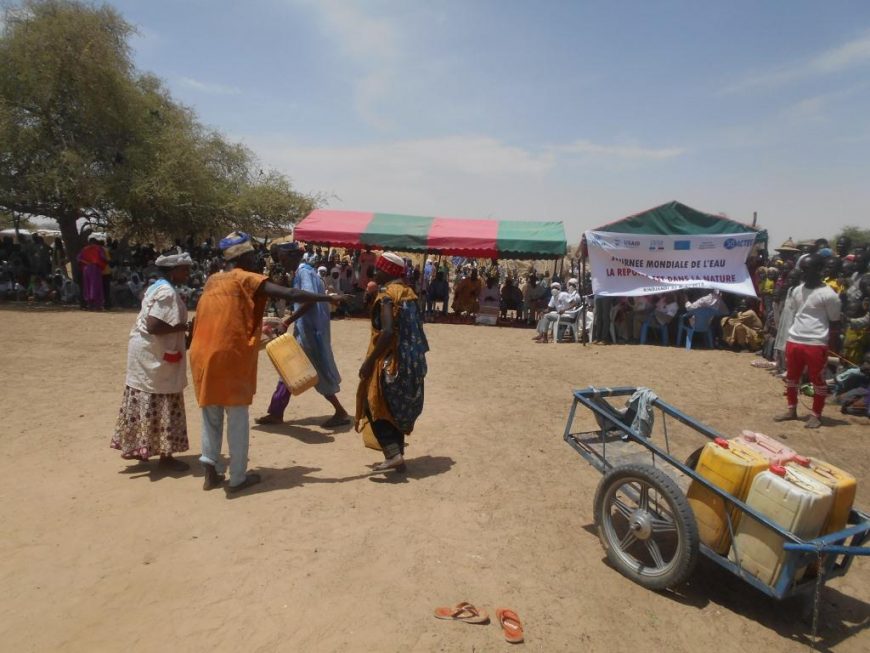Through a field survey, ACTED teams interviewed residents of the commune of Gueskerou (Diffa region, Niger) about a recent water network extension project.
Previously forced to fetch water by donkey three hours away, residents now have access to sufficient water near their place of residence.
Mass displacement to escape violence
Many villages in the Diffa region are home to displaced, refugee or returnee families. Most of these communities are from Nigeria, on the other side of Niger’s border. The arrival of Boko Haram in the villages forced their inhabitants to flee. After a journey of several days or even months, sometimes on foot, these communities found refuge in Diffa. They have been living there for a few years now. Most of these displaced people had to abandon everything in their flight. They don’t think they’re going back to Nigeria, except, perhaps, “if peace returns.”
A smooth but constrained cohabitation
The arrival of displaced populations in villages goes hand in hand with increased pressure on essential resources. In Kindjandi (Gueskerou commune), the arrival of these displaced people has considerably increased the need for water and food. As time goes on, the cultivation areas are reduced. More and more trees are being felled to build new homes and build fires.
Host communities and displaced communities nevertheless live in harmony, especially with the arrival of humanitarian aid to cope with the crisis. This is why ACTED has launched the extension of the Kindjandi water network, a solution to the lack of access to water.
A water point accessible to all
The extension of the water network has allowed the populations of the different sites of the commune to have a water point nearby. This has had a significant impact on their daily lives; With less distance to travel, people are less physically challenged and have more time to devote to other activities.
Populations now share several water points, reducing the waiting time for water. Above all, the water quality is better today, guaranteeing that access to water is sufficient in quantity and quality.
